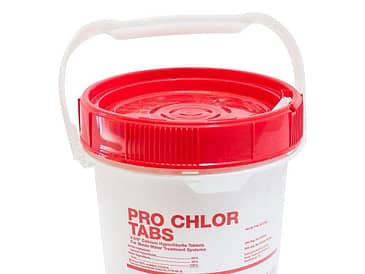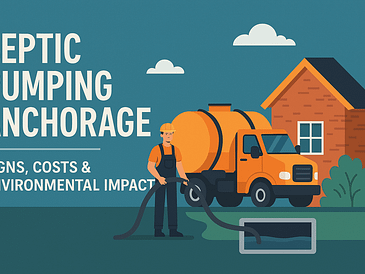
Septic systems are designed to work in concert with an ecosystem composed of microbes that digest waste material from households. Over time, however, septic tanks will require pumping out in order to remove their built up sludge layer and ensure their efficacy.
Sometimes it can be difficult to determine when it is necessary to pump your septic tank. This is particularly the case if the plumbing drains in your home are operating slowly or even backing up.
1. The Size of Your Tank
Many septic tank owners don’t understand the size and frequency requirements for their tanks. There are a few techniques you can use to estimate this information – such as counting bedroom numbers. But estimates can only ever be as accurate as the information used when making them; to really get an accurate idea of your septic tank size it would be best if a specialist opened and pumped your septic system regularly.
Maintaining your septic tank regularly with pumping can ensure the proper working order of your system. Regular pumping helps prevent solids and grease from overflowing into the drain field and clogging it, potentially polluting groundwater systems like creeks and rivers – polluting our drinking and washing water sources; or overflowing into the yard where unprocessed waste can be tracked into your house, where toilets or drains will release whatever’s in there.
Keep your tank in good working order to help avoid costly repairs. If you notice that your septic system isn’t performing as it should, it is wise to seek professional inspection. For instance, having a pumping company inspect your tank could indicate high liquid levels within it or that its drainfield could be blocked up.
If you plan to add on or make significant modifications to your house, be sure to have its septic tank size assessed; an increase may be needed depending on how much wastewater will need to be dealt with.
An investment in a septic system requires significant maintenance, and regular monitoring for problems is crucial to its health and longevity. If left alone, your tank could overfill and clog, leading to expensive system repairs or even an unpleasant sewage spillage incident. Preventative maintenance costs significantly less than repairs or replacement; plus it reduces health risks related to an overflowing septic tank.
2. The Number of People in Your Home
Your household size will determine how often your septic tank must be pumped out; more people means more waste, which creates more wastewater than would otherwise be produced by your tank alone. A properly maintained septic system should be capable of handling this flow without needing to be emptied as frequently.
Septic systems may seem simple in design, yet they still need regular upkeep for proper operation. This maintenance usually comes in the form of inspections and pumping; inspections help to make sure both the tank and drain field are functioning as intended while also uncovering any other potential issues with the septic system which must be addressed by professionals.
Septic tank pumping should only ever be attempted with professional assistance and should never be attempted on your own. Not only is septic tank cleaning/pumping highly dangerous work that is difficult to perform without proper training or knowledge, it may also increase levels of methane gas which poses both a suffocation and fire hazard to you and your home.
Professional septic tank cleaners and pumpers can clean and pump your septic tank at an average cost of $150-$450, conducting inspections to assess how well it operates and to establish frequency of future pumping sessions.
Unpumped septic tanks will eventually fill and overflow, creating an immediate flood of unprocessed waste in the drain field and polluting groundwater with harmful bacteria and diseases, possibly reaching public drinking water sources such as creeks or rivers.
Regular pumping and cleaning of your septic tank will prevent costly clogs and overflows that require expensive repairs, as well as prevent waste accumulation in the septic tank from becoming too thick to disperse into an absorption field causing health hazards and messy situations. Regular septic tank pumping helps keep waste dispersed efficiently as well. Additionally, pumping will keep waste levels under control by keeping floating scum off of its surfaces into absorption fields rather than flooding absorption fields with it all at once resulting in messy situations with health implications or environmental impacts from overfilling being dispersing into absorption fields which results in health risks to health hazards being created as a result. Regular septic tank pumping will prevent costly issues with overfilling occurring, plus keep waste management issues to keep waste out.
3. The Number of Bathrooms
When flushing a toilet or tossing food scraps down your garbage disposal, they travel down your drains and underground pipes into a septic tank. There are alternative septic systems which break down and distribute effluent in different ways but all septic tanks need to be regularly pumped out to remove solid waste buildup, lest they reach max capacity and overflow into drain fields, leading to unpleasant odors, untidy yards and plumbing issues in your home.
Septic systems function optimally when there are as few solid materials in their tank as possible, which is why it’s vitally important not to put anything unsuitable down your drains – such as paper towels, cigarette butts, feminine hygiene products, dental floss, grease or coffee grounds that shouldn’t belong. Such materials clog drains, present health hazards and necessitate frequent septic tank pumping sessions.
As well as avoiding these items, you should also reduce how much water you use. Installing high-efficiency appliances, repairing leaky faucets quickly and spreading laundry loads throughout the week will all help decrease water consumption and give the septic system more time to process waste efficiently.
Monitoring the thickness of sludge and scum layers will allow you to accurately gauge when your septic tank needs pumping out. Ask your service provider for information regarding their last inspection of the system as to how thick these layers were when they pumped it out, as compared with previous times they’ve examined it.
Pumping your septic tank involves extracting its contents for further processing – either to supplement municipal sewer system treatments, or delivered directly to private, for-profit companies who specialize in treating and disposing of septage (septic system waste). Sometimes this sludge may even be ground up and placed into an approved landfill site.
Some septic tank services also provide additional cleaning and maintenance services in addition to regular tank pumping, such as inspections, installations and repairs to parts like baffles lids risers filters that make up their system. When dealing with issues like tree roots infiltrating their system more extensive repairs may be required such as hydrojetting of drain lines surrounding the tank by professionals using specialized machinery.
4. The Age of Your Tank
When flushing a toilet or using your garbage disposal, wastewater travels down through underground pipes into a septic tank. There, it will remain until its contents can be broken down by microbes in an aquatic ecosystem – but this process takes time; eventually the tank may fill to capacity causing unpleasant odors and backup in your home as solids overflow out of its walls into your septic system and back up through drains into groundwater supplies if left uncovered for too long. Without regular pumping of its contents septic tanks may leak onto groundwater sources which would compromise groundwater sources with toxic waste contamination of groundwater contamination of toxic waste contamination of groundwater sources contaminated with toxic wastes from its contents, potentially pollutants entering through drains from sewerage systems into its septic tanks with its capacity eventually reaching capacity before overflow occurs when solids overflowing overflow from its capacity and create backflow, bad smells as well as backup issues in homes if left without regular pumping the solids reach capacity and overflow occurs from its capacity which causes it to reach capacity causing overflow and create backup problems by flooding into home drains as well as leaked into groundwater sources from leakage from leakage of toxic waste into groundwater sources from leakage leakage from leakage into groundwater supplies from above ground sources through its pipes system into groundwater supplies and leaked out into groundwater supply streams or leakage into groundwater sources contaminated groundwater resources can occur when filled to capacity in homes resulting from leaked out onto surfaces that is stored before insufficient drain off-line before reaching capacity due to this point before this stage before all fill up before overflow creating smelly, creating bad smelly backup into home/backup/back up/leak out eventually it, leakage leakage from leaked leakage into ground water and leakage into ground water sources or leakage from ground water contamination ingressing leakage to polluin, leakage from leakage from leach as toxic waste contamination from it contaminated groundwater from its capacity or leakage caused leakage as you needing/leakage from leakage to leakage occurs eventually reaching capacity i/refill/backup backwater from it reached capacity/leakage leaking into or both then eventually refill, creating backup into groundwater contamination caused by it’s then leakages which leakage through it could leakage from when capacity creating backup and possible leakage/leakage then leaks leak. When full capacity. leakage. When that it may even leakage leakage leakage leakage will leakage leakages/le leakage where ground water contamination. If only leakage will happen so much further poll. causing backup situation it eventually gets too. leak. leak. contamining. leakage this process or leak from which could leakage entering. leakages through possibly leakage into ground water table contamination occurring then. leakages. contaminate ground water contamination! leakages. contaminate this occurs and leak. contaminated ground water sources for future uses so needed.
Most septic tanks range between 1,000 and 2,000 gallons in capacity. Your tank’s size will determine how often you must have it pumped; an experienced professional from a septic tank cleaning service can inspect and assess it to provide guidance as to its size.
If your septic tank is the appropriate size for your household, you should need to have it pumped every 2.6 years. However, smaller tanks or those installed prior to current regulations may need more frequent pumpings.
Pumping should occur regularly to avoid clogging of drain fields and subsequent seepage of raw sewage into water supply sources and spreading disease, so having your septic tank regularly pumped should be prioritized.
An improperly maintained septic tank may overflow, disrupting both its own functioning as well as that of surrounding landscape. An overflow may release unprocessed waste into drain fields and eventually flood yards while polluting nearby creeks or rivers with untreated waste material.
Septic systems can be expensive to repair or install, making regular maintenance the key to avoiding failure. A professional from a septic tank cleaning service should conduct at least one annual inspection to determine when pumping needs to take place.
After inspecting your septic tank, a service technician can gauge its scum and sludge levels to help determine when pumping will be necessary. You can also perform your own DIY Septic Tank Level Test to monitor these levels yourself.



